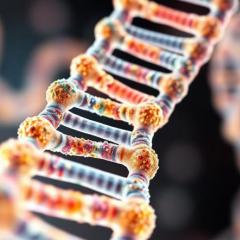Certain antibodies in a patient’s blood stream may enable life-threatening bacterial infections to spread instead of fighting them off, a University of Queensland study has found.
UQ Diamantina Institute Senior Research Fellow Dr Timothy Wells said the discovery may be helpful for treating or preventing sepsis in some patients in the future.
Researchers examined how Escherichia coli (E. coli) in the blood stream can trigger sepsis, an extreme and damaging inflammatory response to infection with a high chance of mortality.
“E. coli is the most common cause of urinary tract infections, and in some people, the bacteria can enter and survive in the bloodstream, leading to sepsis,” Dr Wells said.
“For the bacteria to survive, it needs to be resistant to human serum, which is a component of blood similar in composition to blood plasma.”
Antibodies found in human serum normally protect against infection by binding to bacteria, allowing them to be targeted for killing by ‘complement’ proteins.
“We found that 24 per cent of patients with sepsis caused by E. coli had high amounts of antibodies that inhibited that process,” Dr Wells said.
“These inhibitory antibodies actually protected the bacteria by binding to them and forming a protective wall around them.
“Our results suggest that in some of the patients, the bacteria would not have been able to survive in the blood without these ‘inhibitory antibodies’ being present.
“The high number of patients with inhibitory antibodies suggests this mechanism of serum resistance for E. coli in sepsis is widespread.”
Dr Wells said that removing inhibitory antibodies from the blood restored its ability to kill bacteria.
“These inhibitory antibodies are not just limited to E. coli,” he said.
“We recently treated two patients with lung infections who also had inhibitory antibodies.
“We used a method called plasmapheresis – when a patient’s blood plasma is removed and replaced – removing the inhibitory antibodies.
“This led to an immediate improvement in their health, so new methods that inactivate or remove these ‘bad’ antibodies may be useful to prevent and treat sepsis.”
The study is published in mBio and involved School of Chemistry and Molecular Biosciences researcher Professor Mark Schembri.
Media: Dr Timothy Wells, timothy.wells@uq.edu.au, +61 7 3443 6956; Faculty of Medicine Media, Claire Usmar, med.media@uq.edu.au, +61 7 3365 5118.



